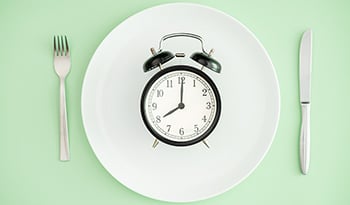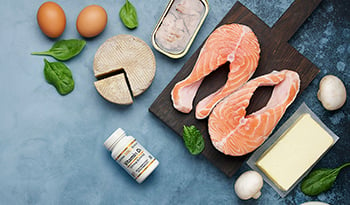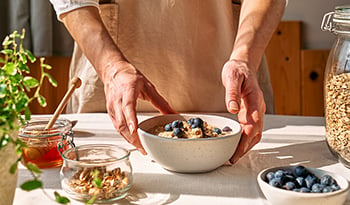En İyi Doğal Şeker İkameleri: Allulose, Monk Fruit, Stevia, + Daha Fazlası
Önemli Çıkarımlar
- En İyi Her Şey: Allulose en iyi seçimdir çünkü tadı şeker gibi, minimum kaloriye sahiptir, kan şekerini etkilemez ve tipik olarak sindirim sorununa neden olmaz.
- Sıfır Kalorili Favoriler: Stevia ve keşiş meyveleri şekerden 200-300 kat daha tatlıdır ve sıfır kalorili ve kan şekeri etkisi yoktur, ancak bazıları hafif bir tat fark edebilir.
- Ölçülü Kullanım: Akçaağaç şurubu ve hindistancevizi şekeri gibi daha az işlenmiş tatlandırıcılar mineral içerir, ancak yine de şeker formlarıdır ve az miktarda kullanılmalıdır.
- Şeker Alkolleri (Eritritol): Bunlar genellikle küçük dozlarda (10 g/günün altında) güvenlidir ancak sindirim sorunlarına neden olabilir. Son çalışmalar, yüksek ve sık eritritol alımı konusunda dikkatli olunması gerektiğini göstermektedir.
Neden Şeker İkamesini Düşünmelisiniz?
Yüksek şeker alımı obezite, tip 2 diyabet, kalp hastalığı ve diğer sağlık sorunları ile bağlantılıdır. Aspartam, sukraloz ve sakarin gibi yapay tatlandırıcılar kalori tüketimini veya vücut ağırlığını güvenilir bir şekilde azaltmaz. Bazı çalışmalar iştahı artırabileceğini ve daha yüksek kalori alımına yol açabileceğini öne sürüyor.
Yapay tatlandırıcılar ayrıca insülin direnci ve kan şekeri kontrolünün kötüleşmesiyle ilişkilendirilmiştir, bu da yüksek diyet içecekleri tüketiminin neden daha yüksek kalp hastalığı riskine bağlı olduğunu açıklayabilir.
Ek olarak, Ulusal Sağlık Enstitüleri'nden (NIH) elde edilen veriler, diyet içecekleri içen yetişkinlerin depresyon geliştirme olasılığının, içmeyenlere göre %30 daha fazla olduğunu gösteriyor.
Paket servisi mi? Yapay tatlandırıcılardan kaçının ve bunun yerine doğal, sıfır veya düşük kalorili alternatifleri seçin . Vücudumuzun enerji için glikoza ihtiyacı vardır, ancak ilave şekere ihtiyacımız yoktur. Hayata tatlı bir dokunuş katabilseler de, yemeğinizi tatlandırmanın birçok sağlıklı yolu vardır.
Şeker Nedir?
İki tür şeker vardır: doğal ve eklenmiş. Meyve ve sebzelerde doğal şekerler bulunurken, lezzeti arttırmak için üreticiler tarafından eklenen şekerler eklenir. Bu şekerli yiyecekler, vücudun onları ne kadar çabuk sindirdiğine bağlı olarak basit veya karmaşık karbonhidratlar olarak sınıflandırılır.
- Rafine şeker, şeker ve beyaz ekmek gibi basit karbonhidratlar hızla sindirilir ve anında enerji sağlar.
- Kepekli tahıllar, meyveler ve bazı sebzeler gibi karmaşık karbonhidratlar daha yavaş sindirilir ve uzun süreli enerji sunar.
Glisemik indeks (GI), bir yiyeceğin kan şekerini ne kadar hızlı yükselttiğini ölçer. Basit karbonhidratlar genellikle daha yüksek GI'ye sahipken, karmaşık karbonhidratlar daha düşük GI'ye sahiptir. Şekerin etkilerini anlamak sağlığınız için önemlidir. Ortalama bir Amerikalı, şeker için 56'dan fazla farklı isimle, şaşırtıcı olmayan bir şekilde günde yaklaşık 17 çay kaşığı şeker tüketir! Eklenen tatlandırıcılar dört kategoriye ayrılır: doğal olarak oluşan, rafine, yapay ve şeker alkolleri.
Eklenen Şeker Nereden Geliyor?
Şeker çeşitli kaynaklardan gelir. Meyve ve sebzeler gibi bazı yiyecekler doğal olarak onu içerirken, üreticiler lezzeti arttırmak için şeker ekler. En yaygın eklenen şekerler, diğer mahsuller gibi yetiştirilen şeker kamışı veya şeker pancarından gelir. Bununla birlikte, bazı üreticiler şeker kamışını, beyazlatmak için inek kemiklerinden yapılmış aktif bir karbon filtresi olan kemik kömürü kullanarak işler. Kemik kömürü şekere girmezken, bazı veganlar bundan kaçınmayı tercih eder. Şeker pancarı, şeker kamışı ile çapraz kontamine olmadıkça tipik olarak bu işlemden geçmez. Şekerin vegan olduğundan emin olmak için etiketi kontrol edin.
Şeker Çeşitleri
Tüm şekerler sakarit moleküllerinden oluşur. Glikoz gibi bir moleküllü şekerler monosakkaritlerdir. Sofra şekeri gibi iki molekülü olanlar disakkaritlerdir. En yaygın şeker türleri şunları içerir:
- Glikoz: Meyvelerde, sebzelerde ve kepekli tahıllarda bulunan basit bir karbonhidrat ve vücudun tercih ettiği yakıt. Ayrıca ilave şeker olarak da kullanılır.
- Sükroz: Yaygın olarak sofra şekeri olarak bilinen bir fruktoz ve glikoz disakkariti. Ayrıca bazı meyve ve sebzelerde doğal olarak bulunur.
- Fruktoz: Meyvede doğal olarak bulunan ve işlenmiş gıdalara yaygın olarak yüksek fruktozlu mısır şurubu olarak eklenen bir monosakkarit.
Doğal ve ilave şeker arasındaki temel fark, doğal şekerli gıdaların enerji ile birlikte besin, lif ve mineraller sağlamasıdır. Amerikan Kalp Derneği, ilave şekeri günlük kalorilerin% 6'sından daha azıyla sınırlandırmanızı önerir - kadınlar için yaklaşık 25 gram ve erkekler için 38 gram. Eklenen şekeri azaltıyorsanız, alternatif tatlandırıcılar iyi bir seçenek olabilir.
En İyi Sağlıklı Şeker İkameleri
Bugün piyasada bulunan pek çok şeker alternatifi varken, hangisini seçeceğinizi bilmek kafa karıştırıcı olabilir. En sağlıklı alternatif tatlandırıcılar glisemik indekste daha düşüktür, kan şekeri seviyeleri üzerinde minimum etkiye sahiptir ve gaz veya şişkinlik gibi sindirim sorunlarına neden olmaz. Düşük veya sıfır kalorili doğal tatlandırıcılar, şeker ve sentetik tatlandırıcıların alımını azaltmak için en iyi çözümdür. İşte deneyebileceğiniz bazı harika sağlıklı tatlandırıcılar.
Stevia
En popüler olanı, Stevia bitkisinden elde edilen sıfır kalorili doğal bir tatlandırıcı olan stevia'dır. Stevia, şekerden 200 ila 300 kat daha tatlı olan ancak kan şekeri seviyelerini etkilemeyen bitki bazlı bir tatlandırıcıdır. Fırınlamada veya normal şeker kullanacağınız herhangi bir şekilde kullanılabilir. Stevia, güçlü bir güvenlik profiline sahip yüksek yoğunluklu bir tatlandırıcıdır, ancak bazıları zamanla iyileşen hafif acı bir tat fark edebilir. Genellikle maltodekstrin veya diğer tatlandırıcılar ile karıştırılır, oksidatif stresi azaltmak ve uzun süreli kan şekeri kontrolüne yardımcı olmak gibi sağlık yararları sunarken tatlılığı arttırır.
allüloz
Allulose , buğdayda ve incir gibi meyvelerde bulunan bir şeker türüdür. Vücut tarafından yavaşça emilir ve kan şekeri seviyelerini etkilemez. Allüloz, şeker kadar yaklaşık% 80 tatlı, ancak sakaroz veya fruktoz kalorilerinin sadece 1/10'u olan düşük kalorili bir şekerdir. Şeker alkollerinin aksine, gastrointestinal sistemde emilir, bu nedenle gaza veya şişkinliğe neden olmaz. Çalışmalar, allulozun hiçbir yan etkisi olmaksızın iyi tolere edildiğini ve stevia veya keşiş meyvesinde sıklıkla bulunan ağızda kalan tada sahip olmadığını gösteriyor. Tıpkı şeker gibi tadı var. Alluloz, kan şekeri kontrolünü teşvik eden ve GLP-1 salınımını artırarak kilo yönetimini destekleyen tatlandırıcıların “Kutsal Kasesi” olabilir. İnsan çalışmaları, allülozlu yemeklerin, özellikle diyabet öncesi veya diyabetli kişilerde kan şekerini ve insülin yanıtlarını önemli ölçüde azalttığını göstermiştir. Allulose, kan şekeri sorunu olanlar için idealdir ve kilo kaybı için de mükemmeldir. Tariflerde 1:1 şeker ikamesi oluşturmak için genellikle keşiş meyvesi ile birleştirilir ve her iki tatlandırıcının da faydalarını sunar.
Keşiş meyvesi
Monk meyvesi veya luo han guo özü, Geleneksel Çin Tıbbında yaklaşık 1.000 yıldır kullanılan başka bir sıfır kalorili, yüksek yoğunluklu doğal tatlandırıcıdır. Monk meyve tatlandırıcısı sofra şekerinden 100 ila 250 kat daha tatlıdır, ancak kan şekeri seviyeleri üzerinde aynı etkiye sahip değildir. Granül, şurup veya sıvı damlalar halinde gelir. Keşiş meyvesi, tatlılığı artırmak için genellikle bir şeker alkolü olan eritritol ile eşleştirilir. Stevia gibi, en az% 80 mogrosit içeren keşiş meyve özleri de doğal, sıfır kalorili tatlandırıcı olarak kullanılır. Mogrozitler ayrıca antioksidan aktivite ve metabolizmayı geliştiren bir enzim olan AMPK'yı aktive etmek de dahil olmak üzere sağlık yararları sağlar.
Şeker alkolleri
Şeker alkolleri veya polioller, eritritol, ksilitol, sorbitol, mannitol ve maltitol gibi düşük kalorili tatlandırıcılardır. Orta miktarlarda güvenlidirler, ancak özellikle çocuklarda daha yüksek dozlarda (günde 10 gramın üzerinde) rahatsızlık veya ishal gibi gastrointestinal sorunlara neden olabilirler. Diğer şeker alkollerinden daha iyi tolere edildiği için popüler olan eritritol, artık yiyecek ve içeceklerde, genellikle şekere benzer yüksek seviyelerde yaygın olarak kullanılmaktadır. Bununla birlikte, çalışmalar bir oturuşta 30 gramdan fazla eritritol tüketmenin kan pıhtılaşması ve kalp hastalığına bağlı arter sertleşmesi riskini artırabileceğini öne sürüyor. Güvende kalmak için eritritol alımını günde 10 gramın altında, riskli seviyelerin çok altında sınırlayın.
Akçaağaç şurubu
Akçaağaç özünden yapılan akçaağaç şurubu bal veya şekere mükemmel bir alternatiftir. Glisemik indeksi daha düşüktür ve diğer tatlandırıcılara kıyasla antioksidanlar bakımından da yüksektir.
Hindistan cevizi şekeri
Hindistan cevizi ağacının özünden yapılan hindistancevizi şekeri , daha az işlenmiş bir şeker şekeridir. Hindistan cevizi şekeri daha düşük bir glisemik indekse sahiptir, yani kan şekerinizin yedikten sonra o kadar yükselmeyeceği anlamına gelir. Beyaz şeker granülleri ile 1:1 oranında kullanılabilir.
Tarihler
Hurma lif ve potasyum ve magnezyum gibi diğer besin maddeleri bakımından yüksektir. Bütün hurmalar, hurma şurubu ve hurma ezmesi, smoothie'leri veya unlu mamulleri tatlandırmak için harika alternatiflerdir.
Yacón şurubu
Glisemik indeksi düşük ve iyi bir prebiyotik olan yacón şurubu, yiyeceklerinizi tatlandırırken bağırsaklarınızdaki iyi bakterileri beslemeye yardımcı olur.
Şeker Alımı İçin Öneriler
2020-2025 Amerikalılar için Diyet Yönergeleri, iki yaşından büyük kişilerin ilave şeker alımlarını toplam günlük kalori alımlarının %10'undan daha azıyla sınırladığını öne sürmektedir.5 Ayrıca, Amerika Birleşik Devletleri'nde ilave şeker tüketimini azaltmak için genel bir sağlık hedefi de belirler.
Eklenen şekerleri sınırlamanız gerekse de, genellikle meyve ve sebzelerden doğal olarak oluşan şekeri sınırlamanız gerekmez. Meyve ve sebzeler, doğal olarak oluşan şekerle birlikte vitaminler, mineraller ve besinlerle doludur ve gününüzü beslemek için daha uzun ömürlü enerji sağlar. Bitki bazlı gıda kaynaklarından çok fazla şeker tüketmeniz pek olası değildir.
Tatlandırıcı alternatifleri, sevdiğiniz tatlı yiyecekleri yemeye devam ederken şeker alımını önemli ölçüde azaltabilir. Eklenen tüm şekeri kısıtlamak şeker isteğine neden olabilir ve tatlıları sevenler için her zaman sürdürülebilir bir seçenek değildir. Bu yiyecekleri ara sıra almanıza izin vermek, diyetinizi dengelemenin sağlıklı bir yoludur.
Eklenen Şeker Alımını Azaltmanın Yolları
Çok fazla şeker eklenmesi obezite, tip 2 diyabet ve kalp hastalığı gibi kronik hastalık riskinizi artırabilir.6 Şeker alımınızı sınırlamanın en iyi yolu, daha az paketlenmiş ve işlenmiş gıdalar tüketmek ve her öğünde bitkisel gıdaların sayısını artırmaktır. İşte yediğiniz ilave şeker miktarını azaltmak için bazı ipuçları:
- Şeker küplerini veya sofra şekerini gözünüzden çıkarın ve dolabınızda saklayın.
- Acıyı azaltmak ve meyve miktarınızı artırmak için greyfurtun üzerine bir şeker alternatifi serpin (ilaç etkileşimleri nedeniyle greyfurttan kaçınmanız gerekmedikçe).
- Şeker içeren yiyeceklerin porsiyon boyutunu azaltın.
- Yemek pişirirken veya pişirirken şeker miktarını yarı yarıya azaltın ve daha fazla lezzet katmak için baharat, otlar ve taze veya kuru meyve kullanın.
Sonuç
Şeker eklenmiş diyetler kalp hastalığı ve diyabet gibi kronik hastalıklara yol açabilir. Sağlıklı tatlandırıcı alternatifleri, ilave şeker alımınızı sınırlamanıza ve sağlığınız üzerindeki bazı olumsuz etkilerinden kaçınmanıza yardımcı olabilir. Size ve yaşam tarzınıza en uygun olanı seçin.
Unutmayın, yediğiniz şeker miktarını sınırlandırmayı hedeflerken, kendinizi çok fazla kısıtlamak şeker yediğinizde suçluluk ve utanç duygularına yol açabilir. Yukarıdaki şeker alternatiflerini kullanmak, diyetinizde biraz tatlılığın tadını çıkarırken sağlık hedeflerinize daha kolay ulaşmanıza yardımcı olabilir.
Referanslar:
- O'Connor D, Pang M, Castelnuovo G, vd. Yetişkinlerde tatlandırıcıların ve tatlılık arttırıcıların iştah, gıda ödülü ve metabolik/yağlanma sonuçları üzerindeki etkileri üzerine rasyonel bir inceleme. Gıda Fonksiyonu. 2021 Ocak 21; 12 (2) :442-465.
- Kossiva L, Kakleas K, Christodouli F, Soldatou A, vd. Yapay Tatlandırıcıların Kronik Kullanımı: Artıları ve Eksileri. Besinler. 2024 Eylül 19; 16 (18): 3162.
- Queiroz I, Defante MLR, Tavares A, vd. Yapay olarak tatlandırılmış içeceklerin yüksek tüketimi ve buna bağlı kardiyovasküler olay riski: Sistematik bir inceleme ve meta-analiz. Curr Probl Cardiol. 2025 Ocak; 50 (1): 102837.
- Guo X, Park Y, Freedman ND, Sinha R, Hollenbeck AR, Blair A, Chen H. Yaşlı ABD'li yetişkinler arasında şekerli içecekler, kahve ve çay ve depresyon riski. PLoS One. 2014 Nisan 17; 9 (4): e94715.
- Patel S, Navale A. Doğal Tatlandırıcı Stevia: Fitokimyası, Sağlık Faydaları ve Anti-diyabetik Çalışması Üzerine Güncellenmiş Bir İnceleme. Curr Diyabet Rev. 2024; 20 (2): e010523216398.
- Munoz-Labrador A, Hernandez-Hernandez O, Moreno FJ. Tatlandırıcılar biliminin durumu hakkında bir inceleme: doğal ve yapay kalorisi olmayan tatlandırıcılar tartışması. Stevia rebaudiana ve Siraitia grosvenorii gündemde. Crit Rev Biotechnol. 2024 Eylül; 44 (6): 1080-1102.
- Mazi TA, Stanhope KL. Yüksek Eritritol: Metabolik Düzensizlik Belirteci mi yoksa Kardiyometabolik Hastalığın Patogenezine Katkıda Bulunan Bir Belirteç mi? Besinler. 2023 Eylül 16; 15 (18) :4011.
- Li J, Dai Q, Zhu Y, vd. Düşük kalorili toplu tatlandırıcılar: Fiziksel faydalar, uygulamalar ve biyoüretimdeki son gelişmeler. Crit Rev Gıda Bilimi Nutr. 2024; 64 (19): 6581-6595.
- Risso D, DunnGalvin G, Saxena S, Doolan A, Spence L, Karnik K. Çocuklarda D-allulozun gastrointestinal toleransı: akut, randomize, çift kör, plasebo kontrollü, çapraz bir çalışma. Gıda Fonksiyonu 2024 Ocak 2; 15 (1) :411-418.
- Çiçekçi RJ, Pence J, Hellenbrand J, Davis A, Davis S, Stockton M, Martin KR. Erkeklerde ve Kadınlarda Alluloz Amino Asit Bazlı Hidrasyon İçeceğinin Günlük Alımının Güvenliğini ve Tolere Edilebilirliğini Değerlendirmek İçin Randomize Deneme. Besinler. 2024 Haz 5; 16 (11): 1766.
- Yuma T, Tokuda M, Nishimoto N, vd. Sağlıklı insanlarda postprandiyal kan şekeri seviyelerinin zayıflaması için allüloz: Sistematik bir inceleme ve meta-analiz. PLoS One. 2023 Nisan 6; 18 (4): e0281150.
- Preechasuk L, Lüksemeyjaroenchai C, Tangjittipokin W, Kunavisarut T. Tip 2 diyabetli hastalarda allüloz tüketiminin glikoz homeostazı, metabolik parametreler, inkretin seviyeleri ve inflamatuar belirteçler üzerindeki kısa vadeli etkileri: çift kör, randomize, kontrollü çapraz klinik çalışma. Eur J Nutr. 2023 Ekim; 62 (7) :2939-2948.
FERAGAT:SAĞLIK MERKEZİ tanı koymayı hedeflememektedir...
















































































 İçindekiler
İçindekiler















